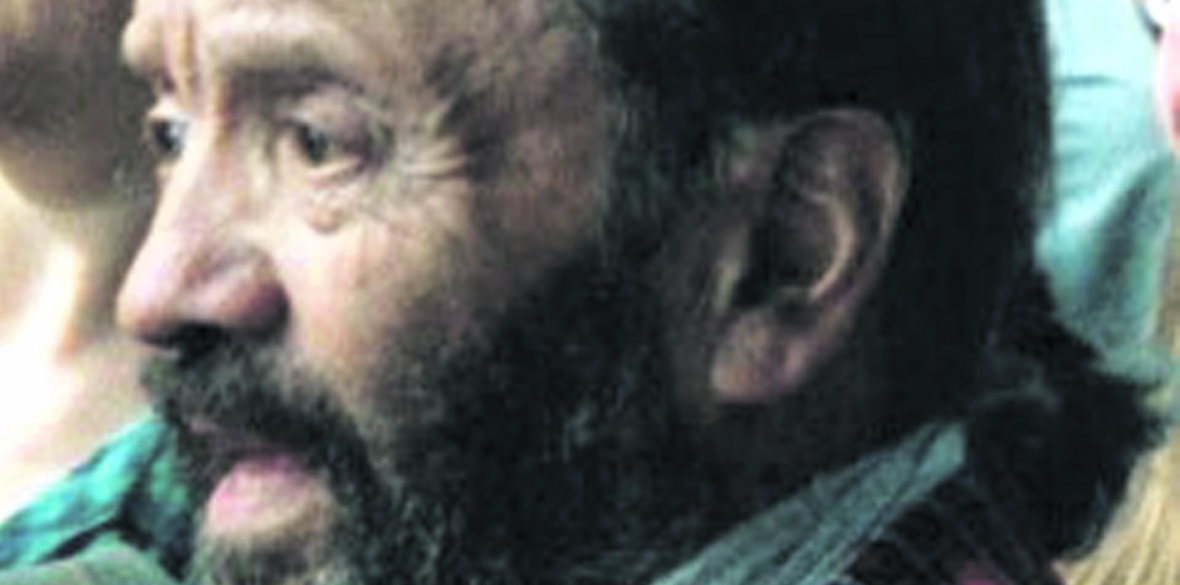This is the last article you can read this month
You can read more article this month
You can read more articles this month
Sorry your limit is up for this month
Reset on:
Please help support the Morning Star by subscribing here
WE met Sergio Lagos, who has died aged 89, in 1998 at the picket calling for the extradition of Chilean dictator Augusto Pinochet.
Pinochet’s detention during a visit to London was triggered by a request from Spanish judge Balthazar Garzon that he should stand trial for crimes against humanity.
It took many by surprise. One of the world’s notorious mass murderers who had enjoyed impunity since his 1973 CIA-backed coup against the democratically elected government of Salvador Allende, was under house arrest!
Sergio, a Chilean refugee, and thousands of others who had survived Pinochet’s death camps, was elated.
But they were worried that the Law Lords, who were considering the extradition request, or the British government would allow Pinochet to return to Chile.
A picket was called to let lords and MPs know that the Chilean community, and in fact Latin Americans and all concerned with human rights, wanted justice.
Mothers, grandmothers, daughters, sisters, fathers, sons turned out, chanting with photos of their disappeared relatives.
Sergio was one of the picket organisers and one of its most committed participants. Between 1998 and 2000 he was there every weekday, propping up the banners and the placards until others could arrive later in the day.
At weekends the picket moved to Virginia Water in Surrey, where Pinochet was under luxurious house arrest, receiving a much-publicised visit from his dear friend Margaret Thatcher.
A lifelong communist and internationalist, and a vegetarian, Sergio welcomed all, regardless of nationality, political affiliation or lack of it.
Aware of women’s caring contributions to every community, Sergio greeted our women’s groups on the picket with open arms.
He had been tortured in Chacabuco, in the Atacama desert, one of the concentration camps that sprang up after the military coup.
Atacama is also home to one of the world’s biggest telescopes. In his documentary Nostalgia for the Light, Patricio Guzman, whose films on Allende are famous, compared the astronomers’ search for humanity’s past to the mothers of the disappeared still searching the desert for the remains of their loved ones.
Thousands were murdered under the dictatorship, among them the revered movement singer Victor Jara, killed in Santiago’s stadium.
Years later, Sergio was part of the British tour for Jara’s British wife Joan to launch her book, An Unfinished Song: The Life of Victor Jara.
Released from Chacabuco, Sergio found support at FASIC (Fundacion de Ayuda Social de las Iglesias Cristianas/Social Aid Foundation of the Christian Churches), an ecumenical organisation in Santiago which helped former detainees.
From there he was able to seek refuge in Britain in 1978 — first in Coventry, then London — never to return.
We remember seeing John Pilger’s documentary, The War on Democracy, with Sergio, who was visibly upset by the interviews with torture survivors.
He told us that his two sons had disappeared and that his wife had blamed his political activities for their loss.
Despite these tragedies, Sergio had a great will to live and a great capacity for joy. His greatest love was the Cuban Revolution.
He had visited Cuba and found relief there for the back pain that plagued him for the rest of his life — the legacy of being hanged by the feet and beaten.
He asked for his ashes to be taken there — his only wish we know of. He used to say: “I have a god, his name is Che Guevara.”
The decision by the Blair government to return Pinochet to Chile despite the Law Lords ruling for extradition, was a terrible blow and a clear warning that New Labour’s loyalties did not lie with human rights.
But Sergio was undefeated. He enthusiastically participated in Cuba Solidarity’s campaign to collect material aid for Cuba which faced an economic emergency after the collapse of trade with the Soviet Union.
The aid was a symbol of solidarity against a massive tightening of the US blockade. He attended events at the Crossroads Women’s Centre.
In 2006, he joined our international Global Women’s Strike/Payday delegation to the World Social Forum in Hugo Chavez’s Venezuela, documented in the film Journey with the Revolution (Finn Arden and Nina Lopez).
In 2013 he received a World Refugee Day award for distinguished effort in assisting refugees.
An avid Morning Star reader, he rejoiced when Jeremy Corbyn — “the great man” – became leader of the Labour Party.
His room at British Home care centre, where he spent his last two years, was decorated with photos of Allende, Castro and Che, and of Corbyn at the anti-Pinochet picket all those years ago.
His friends Ana Seval, whom he first met at FASIC, and her daughters Maria and Jacqueline, also refugees in Britain, helped care for him in his last years, as did some of us from Crossroads.
His mischievous sense of humour won him friends everywhere. Nurses at British Home told us that on the day he was taken to hospital he had them all in stitches with his jokes.
Companero Sergio Lagos, presente!
Sergio Lagos’s funeral is on Tuesday January 28 at 2pm, at West Norwood Crematorium.










